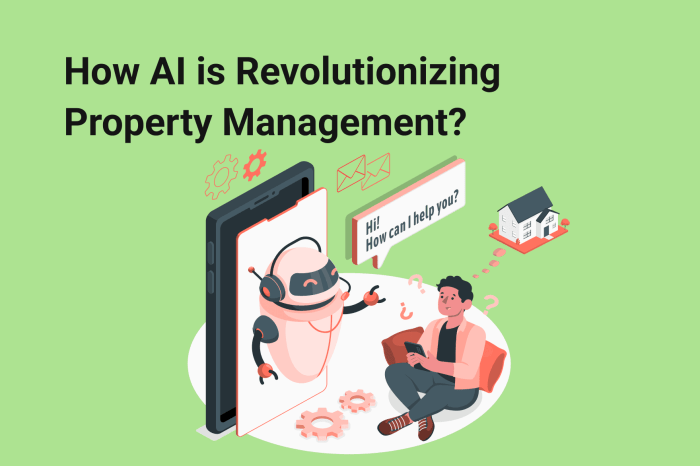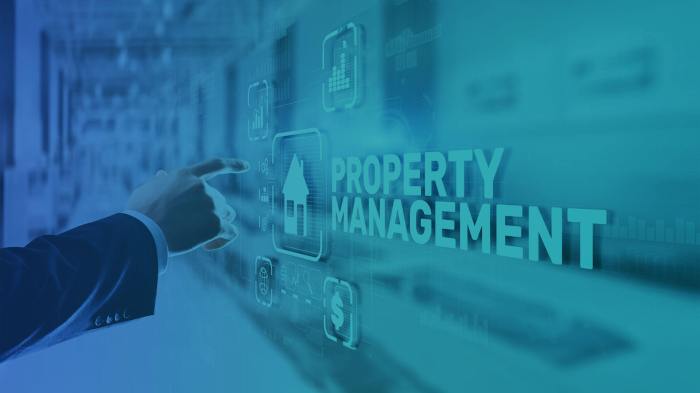Exploring AI Property Management: Revolutionizing the Real Estate Industry
AI property management introduces a new era in real estate operations, leveraging cutting-edge technology to streamline processes and enhance efficiency. As AI continues to reshape various industries, its impact on property management is significant, offering innovative solutions to age-old challenges.
Let's delve into the realm of AI property management and discover how this transformative technology is reshaping the way properties are managed and maintained.
Introduction to AI Property Management
AI in property management refers to the use of artificial intelligence technology to streamline and optimize various processes within the real estate industry. This includes tasks such as tenant screening, maintenance scheduling, rent collection, and more. By utilizing AI, property managers can save time, reduce costs, and improve overall efficiency in managing properties.
Revolutionizing the Property Management Industry
AI is revolutionizing the property management industry by introducing automation and data-driven decision-making processes. This technology enables property managers to analyze large amounts of data quickly and accurately, allowing them to make informed decisions based on predictive analytics. By leveraging AI, property managers can enhance tenant experiences, improve operational efficiency, and maximize revenue potential.
Key Benefits of Implementing AI in Property Management Processes
- Improved Efficiency: AI can automate repetitive tasks, freeing up property managers to focus on more strategic initiatives.
- Enhanced Tenant Experience: AI can personalize tenant interactions, providing a more tailored and responsive experience.
- Cost Savings: AI can identify cost-saving opportunities, optimize energy usage, and reduce maintenance expenses.
- Predictive Maintenance: AI can predict maintenance needs, reducing downtime and extending the lifespan of property assets.
- Data-Driven Insights: AI can analyze data to uncover trends, patterns, and opportunities for optimization.
AI Applications in Property Management

AI technology is revolutionizing the property management industry by automating various tasks and enhancing efficiency in operations. Let's explore some key applications of AI in property management.
Automating Property Maintenance Tasks
AI-powered tools can streamline property maintenance by predicting when repairs or maintenance tasks are needed. For example, sensors can monitor equipment performance and detect issues before they escalate, allowing for proactive maintenance scheduling. This helps property managers save time and resources by addressing maintenance issues promptly and preventing costly repairs.
Streamlining Tenant Communication and Interactions
AI chatbots are being used to handle tenant inquiries, schedule property viewings, and address maintenance requests. These chatbots can provide quick responses to common questions, freeing up property managers' time to focus on more complex tenant needs. Additionally, AI can analyze tenant feedback and preferences to personalize communication strategies, enhancing tenant satisfaction and retention.
Assisting in Pricing Strategies for Rental Properties
AI algorithms can analyze market trends, competitor pricing, and property features to determine optimal rental pricing strategies. By leveraging AI tools, property managers can set competitive rental rates, maximize occupancy rates, and optimize rental income. This data-driven approach ensures that rental properties are priced appropriately to attract tenants while maximizing profitability.
Enhancing Operational Efficiency with AI
AI technology plays a crucial role in optimizing property management workflows, revolutionizing the way tasks are handled to achieve greater efficiency and productivity. By leveraging AI applications in property management, real estate professionals can streamline operations, enhance tenant satisfaction, and ultimately drive business growth.
Optimizing Property Management Workflows
- AI-powered tools can automate repetitive tasks such as lease management, maintenance requests, and financial reporting, saving property managers valuable time and resources.
- Machine learning algorithms can analyze large volumes of data to identify trends and patterns, enabling better decision-making and strategic planning in property management.
- Predictive analytics can forecast maintenance needs and potential issues, allowing property managers to proactively address maintenance concerns and minimize downtime.
Predictive Maintenance in Real Estate
- AI algorithms can analyze historical maintenance data to predict when equipment or systems are likely to fail, helping property managers schedule maintenance activities more efficiently.
- By implementing predictive maintenance strategies, property owners can reduce the risk of unexpected breakdowns, extend the lifespan of assets, and improve overall operational reliability.
- AI-powered maintenance solutions can prioritize critical maintenance tasks based on urgency and impact, ensuring that resources are allocated effectively to address high-priority issues.
Reducing Operational Costs in Property Management
- AI-driven energy management systems can optimize energy consumption in buildings, reducing utility costs and promoting sustainability in real estate operations.
- Automated rent collection processes facilitated by AI technologies can streamline financial transactions, minimize errors, and improve cash flow management for property owners.
- AI-based predictive analytics can help property managers forecast budgetary needs more accurately, enabling them to allocate resources efficiently and reduce unnecessary expenses.
Data Management and Analysis in AI Property Management
Data analytics plays a crucial role in property management when combined with artificial intelligence
. By utilizing AI algorithms to analyze large datasets, property managers can make informed decisions and optimize various aspects of their operations.Importance of Data Analytics in Property Management with AI
Implementing data analytics in property management allows for the extraction of valuable insights from vast amounts of information. AI can process and interpret data more efficiently than traditional methods, enabling property managers to identify trends, patterns, and opportunities that would otherwise go unnoticed.
How AI Algorithms Analyze Large Datasets
AI algorithms are designed to handle complex datasets by utilizing machine learning and predictive analytics. These algorithms can sift through massive amounts of data to generate actionable insights, helping property managers make strategic decisions based on accurate and up-to-date information.
Examples of Data-Driven Insights from AI
- Forecasting Rental Prices: AI can analyze market trends, demand-supply dynamics, and rental property features to predict optimal rental prices, maximizing returns for property owners.
- Maintenance Predictions: By analyzing historical maintenance data and property conditions, AI can forecast potential issues and maintenance requirements, allowing property managers to proactively address maintenance needs and minimize downtime.
- Tenant Screening: AI algorithms can analyze tenant background information, credit scores, and rental histories to assess tenant reliability and potential risks, improving the tenant selection process and reducing the likelihood of rental defaults.
Implementing AI Solutions in Property Management

Implementing AI solutions in property management involves a strategic approach to integrating advanced technology into existing systems. It requires careful planning, collaboration, and a clear understanding of the benefits AI can bring to the management of properties.
Steps for Integrating AI Tools into Existing Property Management Systems
- Assess Current Needs: Identify areas within the property management process that can benefit from automation and AI technology.
- Research AI Solutions: Explore different AI tools and technologies available in the market that align with the identified needs.
- Choose the Right Provider: Select a reputable AI technology provider with a proven track record in property management solutions.
- Customize and Implement: Work closely with the AI provider to customize the solution to fit the specific requirements of your property management system.
- Training and Implementation: Provide training to staff members on how to use the new AI tools effectively and ensure a smooth transition during implementation.
- Monitor and Evaluate: Continuously monitor the performance of the AI solutions and gather feedback for improvements.
Best Practices for Selecting AI Technology Providers for Property Management
- Look for Experience: Choose a provider with experience in developing AI solutions for the real estate industry.
- Check References: Ask for references and case studies from previous clients to assess the provider's capabilities.
- Scalability: Ensure that the AI solutions offered are scalable and can grow with your property management needs.
- Integration Capabilities: Select a provider that can seamlessly integrate AI tools into your existing systems without disruptions.
Challenges and Considerations when Implementing AI Solutions in Property Management
- Data Security: Protecting sensitive property and tenant data is crucial when implementing AI solutions.
- Costs and ROI: Calculate the costs associated with implementing AI tools and evaluate the return on investment for long-term benefits.
- Staff Training: Proper training is essential to ensure that staff members can effectively utilize AI technology in their daily operations.
- Regulatory Compliance: Ensure that the AI solutions comply with local regulations and data privacy laws in the property management sector.
Epilogue

In conclusion, AI property management is poised to revolutionize the real estate sector by optimizing operations, enhancing tenant experiences, and driving strategic decision-making. Embracing AI tools in property management is not just a trend but a necessity in staying competitive in the dynamic real estate landscape.
As technology continues to evolve, the future of property management undoubtedly lies in the realm of artificial intelligence.
FAQ Summary
How can AI benefit property management processes?
AI can optimize workflows, streamline tenant interactions, and offer data-driven insights for informed decision-making.
What are some challenges of implementing AI solutions in property management?
Challenges include data privacy concerns, initial setup costs, and the need for staff training to effectively utilize AI tools.
How does AI assist in pricing strategies for rental properties?
AI tools can analyze market trends, demand-supply dynamics, and competitor pricing to help property managers set optimal rental prices.




